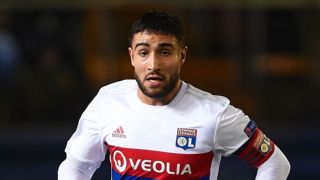|
LIVERPOOL, England -- Liverpool's move for Nabil Fekir fell through last weekend following the medical the French international took ahead of a €60 million transfer. A source has told ESPN FC that Liverpool did not attempt to renegotiate terms with Lyon, who said in statement on Saturday that they had broken off negotiations. Both clubs have since offered no indication as to why the move broke down. Fekir suffered a cruciate ligament injury when on international duty back in September 2015 that forced him to miss the majority of the 2015-16 campaign. ESPN FC spoke to former Chelsea first-team doctor Ralph Rogers for his insight into the process of a football medical. ESPN FC: Can you explain how in-depth and thorough medicals are for multi million pound transfers? Dr Rogers: Actually, it's a fallacy. Sometimes they're not at all. When you have these transfer deadlines, how in-depth can a football medical be? Sometimes they're not. Sometimes teams are not forthcoming with past medical injuries. How in-depth can medicals be when you have these transfer deals going on left and right? Especially when a club has not totally disclosed all the medical details -- and clubs don't always do that, it's not always transparent. It's almost like: "It's for you to find out." ESPN FC: Fekir, for example, suffered a serious knee injury three years ago and underwent a minor procedure last March. Can previous injuries be a deal-breaker? RR: I don't know if Liverpool had all the information about his previous injury, I'm sure they might have suspected because he was out for a few months. Nobody really tells you too much about your medical history if they don't want you to know. It's like buying a used car. If you're buying a used car, they might not tell you everything that's wrong with that car. That's in all industries. But then if you're going to buy someone then you get all the information. On top of that, there are tests that are made -- you can look at muscle balance, muscle strength across both knees. There are all kinds of strength, agility and speed tests you can make for you to be happy or not happy. It's all about whether these (previous injuries) would impact a player in the future. ESPN FC: It seems it's all comes down to risk. Some Liverpool fans will watch Fekir at the World Cup this summer and wonder why the transfer fell through ... RR: There always can be a danger when playing a contact sport such as football. I would applaud the medical staff for making such a call. They looked at the risk and they weren't happy with what they saw. For fans, it's easy to spend somebody else's money. But if you bought the player and then he broke down then there would be questions about why their club bought that player. You have experts, highly trained, highly intelligent people looking at risk, injury-risk and what could happen in the future. The club might want the player for the long term and not just one or two years. They might want him for their five-year plan, but he might only have an 18-month knee or whatever the injury is. It's a science and it's not all about: "I want, I want, I want." It's all about what's right for the club. €60m is a lot of money. I'm very supportive of the medical staff in whatever decision they make because they made it for a reason.  ESPN FC: I get the impression that every club is different in regards to how much emphasis they place on the results of a medical RR: If you've got a player that is supremely gifted, but can possibly become injured because of some underlying condition -- do you buy him? It comes down to the club. That's my point. If you're a very wealthy club then you don't really care because it's not a problem. "We bought this person for £80m and he broke down. No problem, we'll just buy another one." If money and support is in abundance then you can just about do anything. Again, I applaud the medical staff for making the call.
|

